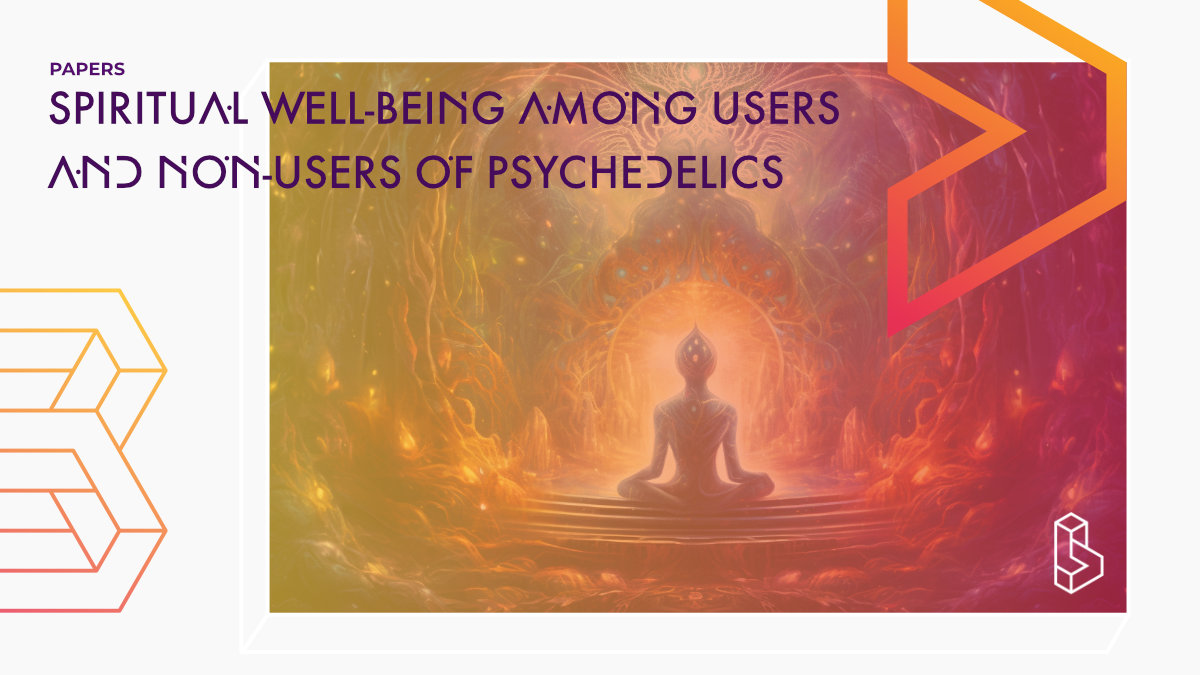This cross-sectional survey (n=517) assessed the psychometric properties of the Spiritual Well-Being Scale (SWBS) concerning existential well-being (EWB) and religious well-being (RWB). The study found that the RWB factor exhibited superior psychometric indices for validity, group discrimination, and reliability, showing a U-shaped pattern in the association between psychedelics and spiritual well-being, where non-users and frequent users had higher RWB and EWB indices than occasional users.
Abstract of Spiritual Well-Being Among Users and Non-Users of Psychedelics
“This study evaluated the psychometric properties of the Spiritual Well-Being Scale (SWBS) in a Brazilian sample. We analyzed spiritual well-being, defined as existential well-being (EWB) and religious well-being (RWB), among individuals with varying religious and spiritual experiences, both users and non-users of psychedelics. The online cross-sectional survey was conducted in Brazil, from April to June 2022. The psychometric analyses demonstrated reliability and validity based on the internal structure and the relationship with satisfactory external variables concerning the RWB and EWB factors of the SWBS. Validity evidence was shown for both factors (RWB, EWB) with adequate reliability ratings. However, the RWB factor, which was entirely replicated, demonstrated the best group differentiation and internal consistency. Although both factors showed validity, the RWB factor exhibited superior psychometric indices for validity, group discrimination, and reliability. Regarding psychedelics, the association with RWB and EWB demonstrates a U-shaped pattern, as participants who never use these substances typically exhibit higher RWB and EWB indices, succeeded by frequent users. This finding underscores the need for additional studies to further explore the intricate interplay between psychedelics and spiritual well-being.”
Authors: Ana C. Mesquita Garcia, Lucas O. Maia, Everson Meireles, Denismar A. Nogueira & Luís F. Tófoli
Summary of Spiritual Well-Being Among Users and Non-Users of Psychedelics
The Spiritual Well-Being Scale (SWBS) was devised based on the theoretical assumption that spiritual well-being encompasses both a religious and a social-psychological component. It can be measured more like a stethoscope than the heart itself.
Psychedelic plants like peyote, ayahuasca, and Psilocybe mushrooms have been used in religious contexts for centuries due to their potential to induce profound spiritual and mystical experiences.
The SWBS is a widely used instrument in clinical research for assessing the construct of spiritual well-being, and it was used in a Brazilian sample of individuals with varying religious and spiritual experiences.
Find this paper
Spiritual Well-Being Among Users and Non-Users of Psychedelics: A Cross-Sectional Study
https://doi.org/10.1080/02791072.2023.2284343
Paywall | Google Scholar | Backup | 🕊
Cite this paper (APA)
Garcia, A. C. M., Maia, L. O., Meireles, E., Nogueira, D. A., & Tófoli, L. F. (2023). Spiritual Well-Being Among Users and Non-Users of Psychedelics: A Cross-Sectional Study. Journal of Psychoactive Drugs, 1-10.
Study details
Participants
517
Humans

